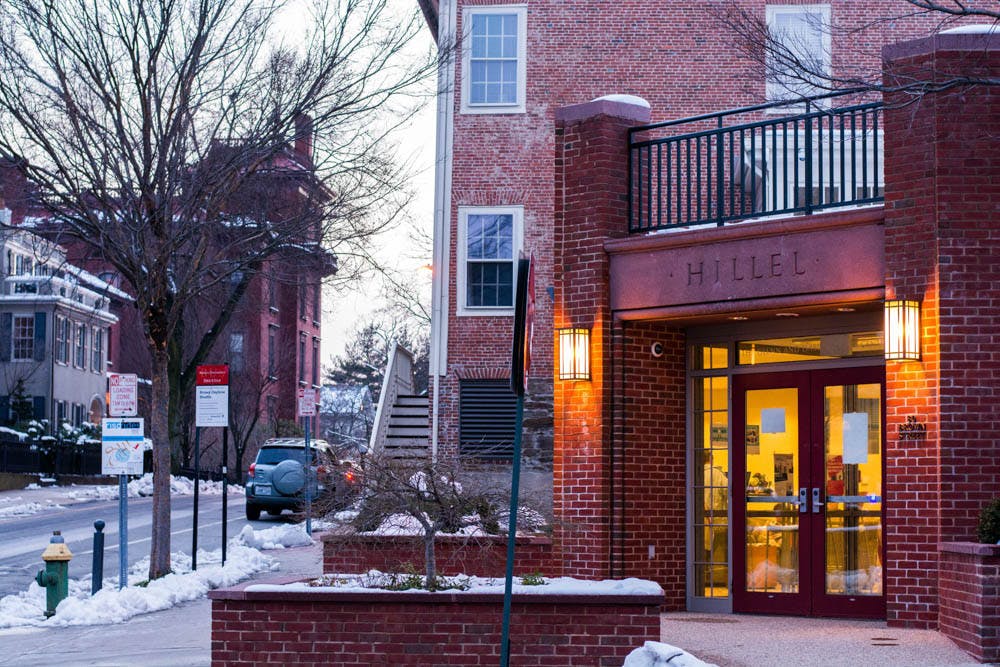Updated March 20, 2016 at 12:35 p.m.
Janet Mock, a black, native Hawaiian trans woman and activist, announced Wednesday morning that she had canceled her campus talk, “Redefining Realness,” which was originally scheduled for March 21. Mock was invited to be a keynote speaker by Moral Voices, in association with the Brown Center for Students of Color, Sarah Doyle Women’s Center, LGBTQ Center, Sexual Assault Peer Educators, Swearer Center for Public Service, Office of the Chaplains, the Rhode Island School of Design’s Office of Intercultural Student Engagement and Brown/RISD Hillel.
Moral Voices is a student group that aims to raise awareness about social justice issues of global importance each year, wrote Moral Voices co-chairs Natalie Cutler ’16 and Rachel Levy ’16 in a written statement published on medium.com.
After the group invited Mock to lecture on campus, students drafted a petition on Change.org asking Mock to disassociate her lecture from Hillel.
Hillel co-sponsored the lecture, and Moral Voices is a student group funded by a grant from within the Hillel budget, said Marshall Einhorn, executive director of Hillel. The statement published by Cutler and Levy states that the group is run “through Brown/RISD Hillel and funded by a private donor.”
The petition argued that the invitation was an attempt to “pinkwash” the history of Israel or “improve Israel’s image and rebrand it as a liberal, modern and ‘hip’ country.” Petitioners saw the move as an attempt to deflect attention from Israel’s previous track record on LGBTQ rights, racism and the occupation of Palestinian territories, the petition stated.
“We do not condone the use of queer people of color as props to hide occupation,” the petition concluded. Petitioners did not intend for Mock to cancel her lecture but instead urged her “to accept Brown students’ sponsorship instead of Hillel’s,” the petition stated.
The petition received 160 signatures, according to a member of Students for Justice in Palestine who wished to remain anonymous for fear of professional repercussions. He added that the petition was drafted and signed by “a broad coalition” of students from various student groups — including trans and queer students — who felt that there was a contradiction between Mock’s message and what Hillel stands for as an organization.
“With an Israeli government that time and time again is exploiting LGBTQ individuals for the sake of covering up (its) crimes, then it becomes really important that we don’t let a Center who is time and time again supporting the Israeli regime to then claim that they are also supporting LGBTQ voices. There is a serious contradiction there,” the SJP representative said.
“We feel the focus of Janet’s work was lost leading up to the proposed event,” wrote Mock’s representatives in an email to Moral Voices, later shared on the group’s Facebook page. The representatives added that Mock’s visit “was received with controversy and resistance rather than open dialogue and discussion about the issues closest to Janet’s work in movements for trans liberation, racial justice and intersectional feminism.”
Members of the coalition of students that signed the petition spoke directly on the phone to Mock’s agent and made their concerns explicit that “the real concern was Hillel sponsorship,” the SJP representative said. But even if Mock spoke at the Brown/RISD Hillel-sponsored event, “there wasn’t going to be a protest, boycott — nothing like that,” he added.
“What her staffers made clear in the statement was that Janet’s talk was sort of overshadowed by some other issues,” the SJP representative said, adding that “unfortunately we feel that those other issues are inseparable from a Hillel sponsorship.”
“Moral Voices committee members represent diverse identities of sexuality, gender, religious affiliation and ethnic heritages, and we reject the charge that Hillel’s sponsorship invalidates our work,” wrote Cutler and Levy in their statement. They wrote that the group’s association with Hillel’s Israel- and Palestine-related programming was not related to Mock’s lecture and should not deter intersectional engagement within the Jewish community. “Does simply engaging in a Jewish space render one unfit to do justice work?”
Einhorn said the lecture’s affiliation with the Jewish nature of the organization “felt irrelevant to the question of whether Ms. Mock should have spoken at Brown.”
“We wanted to hear from a speaker whose story and message resonates so deeply with members of the Brown community as well as members of the Jewish community,” Einhorn said. “To have that voice effectively silenced is extremely disappointing.”
The SJP representative said the coalition of students who signed the petition “support her decision to cancel.”
Students opposing the petition asking Mock to dissociate her lecture from Hillel’s sponsorship circulated a statement on the same website, Change.org, Wednesday afternoon. “We were shocked to see the petition circulated against Jewish students’ right to host events addressing queer issues, both because of the petition’s blatant anti-Semitism and because of the disrespect it exhibited for such an important speaker and activist,” the statement read.
President Christina Paxson P'19 sent a community-wide email March 20 to address Mock's lecture cancellation, stating "I am disappointed that a valuable learning opportunity was lost." She also noted that "while we cannot and should not prevent any member of our community from signing a petition, it is counter to Brown’s norms and values for expressions of dissent to be targeted at a student group because of its religious affiliation." She also stressed that there is no evidence of a link to the recent anti-Semitic and homophobic vandalism in Marcy House Thursday night.
Paxson wrote that she has reached out to Mock to reconsider coming to the University to speak, and she declined. But she said that she will "issue an open invitation" to Mock and that other student organizations are welcome to co-sponsor the lecture if and when she accepts.





